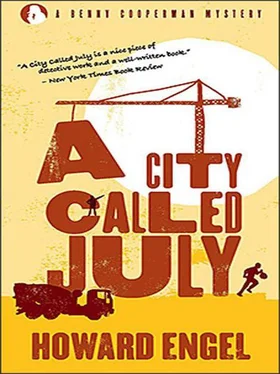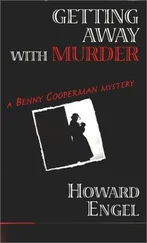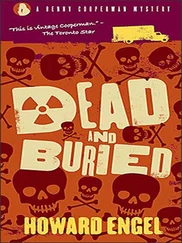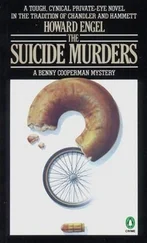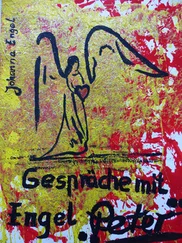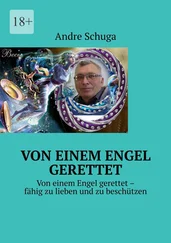Howard Engel - A City Called July
Здесь есть возможность читать онлайн «Howard Engel - A City Called July» весь текст электронной книги совершенно бесплатно (целиком полную версию без сокращений). В некоторых случаях можно слушать аудио, скачать через торрент в формате fb2 и присутствует краткое содержание. Год выпуска: 0101, Жанр: Криминальный детектив, на английском языке. Описание произведения, (предисловие) а так же отзывы посетителей доступны на портале библиотеки ЛибКат.
- Название:A City Called July
- Автор:
- Жанр:
- Год:0101
- ISBN:нет данных
- Рейтинг книги:3 / 5. Голосов: 1
-
Избранное:Добавить в избранное
- Отзывы:
-
Ваша оценка:
- 60
- 1
- 2
- 3
- 4
- 5
A City Called July: краткое содержание, описание и аннотация
Предлагаем к чтению аннотацию, описание, краткое содержание или предисловие (зависит от того, что написал сам автор книги «A City Called July»). Если вы не нашли необходимую информацию о книге — напишите в комментариях, мы постараемся отыскать её.
A City Called July — читать онлайн бесплатно полную книгу (весь текст) целиком
Ниже представлен текст книги, разбитый по страницам. Система сохранения места последней прочитанной страницы, позволяет с удобством читать онлайн бесплатно книгу «A City Called July», без необходимости каждый раз заново искать на чём Вы остановились. Поставьте закладку, и сможете в любой момент перейти на страницу, на которой закончили чтение.
Интервал:
Закладка:
Howard Engel
A City Called July
ONE
I sat in my office cleaning out the fuzzy rubble that collects at the bottom of the jam jar I keep pens and pencils in. Also in the litter I found an old watch strap, paper-clips, slightly used Stimudents, clip-on sunglasses and a book of paper matches from Hatch’s Surf Lounge in Niagara Falls, New York, three-quarters used. The ashtrays on my desk were empty except for the one with my current Player’s nodding off in it. I’d cleaned them all the afternoon before to keep me from falling asleep. It was one of those summer mornings when the telephone didn’t ring and I was edgy because it kept looking like it was going to. I’d written a couple of cheques and paid the back rent on the office and my room at the City House. I should have had that warm feeling that comes with my monthly attempt at putting my life in order, but I felt that if I didn’t have the pens, pencils and other junk to occupy my mind completely, I’d break out in a sweat.
Outside the window, the traffic along St. Andrew Street moved inexorably eastward. Working on the second floor overlooking the one-way main street of this town sometimes gives me the feeling that there is a secret evacuation going on and I’ll be the last to hear about it. I tried to settle my mind with the fact that both Church and King went one way in the opposite direction. There must be some law of physics we covered in high school that accounted for that, some Newtonian principle making traffic east balance traffic west. I played with that notion for a few minutes while blowing lint and fuzz off otherwise perfectly good paper-clips.
There was a rap at my door, and before I could answer it or even shout “Come in!” two heads poked through the doorway. I recognized both of them.
“Rabbi Meltzer! Mr. Tepperman! Come in! Come in!” I tried to turn the surprise I felt into a friendly greeting, but I don’t think I succeeded in projecting it across the room to the door. I glanced for a moment to the trio of bald mannequins in the corner, nude except for a wrapper of unbleached factory cotton. I saw knees and shoulders but nothing to scandalize my visitors. I’d managed to get rid of most of the other left-overs from my father’s ladies’ ready-to-wear business, except for my three bedraggled Graces. The rabbi and Mr. Tepperman, the president of B’nai Shalom Congregation, were both blinking in the bright light of the office after the steep climb up the unlighted stairs from the street They took their hats off and stood with their backs to the girls.
“Good morning, Mr. Cooperman. How are you?” said Mr. Tepperman. Good, I thought, let’s get over the secular things first. At the back of my mind was the plot in the cemetery I was sure they were after me to buy. I had no reason for thinking this, but a visit from the rabbi and the president wasn’t a daily occurrence. I felt my immortal soul was in hazard. They weren’t selling raffle tickets on a car for the Haddassah Bazaar. Of that much I was sure.
“I’m fine, Mr. Tepperman. Come in. Have a chair. Here, Rabbi, why don’t you take this chair?”
“Thank you, Mr. Cooperman,” said Rabbi Meltzer, tucking his lightweight raincoat under him as he settled into the aged foam rubber of a tubular chair that used to stand near the door of my father’s store. It gave my place an art deco look. All I needed were marcelled blonde wigs for the mannequins. The rabbi watched Tepperman settle into the other chair. It matched my oak veneer desk. “We, ah, we are not disturbing you?” continued the rabbi, the thought nearly lifting him out of his seat again.
“Not at all. I’m glad to see you.” This wasn’t exactly true. It had been some time since I’d seen either one of them, but I remembered the occasions the way a headstone remembers the name chiselled into its face. I pictured the artificial turf at Sally Lenowitz’s funeral. I remembered the empty space next to Sally’s name when they unveiled the double tombstone. Joe, the widower, made a joke about how they’d never cram him into the narrow space. No wonder my visitors made me fidget.
Once they were both seated, the silence and the embarrassment began in earnest. It was a recognized stage in the interviewing of clients. But it was only my inability to face dealing with plots and eternal upkeep that turned my visitors into clients. I was pretty sure they didn’t want me to put up my name to succeed Saul Tepperman as president. It could have been a touch. Something legitimate on behalf of the community that was going to set me back fifty dollars. It could have been anything. I watched Mr. Tepperman and the rabbi trying to outwait each other, each deferring to the other’s better right to speak first. I sat it out.
“Benny,” Saul Tepperman began at length, and started to cough. He called me Benny and that relieved the tension by half a notch. He’d always been Mr. Tepperman to me, but I wasn’t fifteen any more. He looked like he was ready to begin again. “Benny, we have a problem.” Having got that much out, he looked to the rabbi for encouragement. Rabbi Meltzer nodded to show he couldn’t have expressed it better himself. This was no time to stop. We had a consensus: there was a problem. Saul moistened his lips with the pink tip of his tongue. From under the bush of his nicotine-stained moustache it moved quickly, covering all surfaces and retreating behind the white and gold of his smile. “The fact is, Benny, that we have a situation here in town; like I said: a problem. Isn’t that right, Rabbi?” The rabbi jumped like the spinal cord had snapped to attention. Caught off guard, all he could do was nod vigorously. Rabbi Meltzer was a small compact bundle that had gathered arms and legs together so that they almost disappeared as separate appendages. Next to him, Tepperman leaned forward in his chair like a large parcel about to come apart.
“You know, Benny, in a community, we live in and out of one another’s lives I’ve known you since you were bar mitzvah. That’s the way it is in a small town. You scratch my back … You follow me?”
“Take your time.”
“A community, Benny, is built on cooperation and trust,” he said. “We have to depend on one another. I buy from Rosen, Rosen buys from Katz and Katz buys from me. Sure, today, the circle’s a little wider. There’s a Murphy in there and a Mackenzie. But that doesn’t matter. The idea’s the same. In a community, in any community, big or small, trust is the oil at the joints. You understand what I’m saying?”
“Tell me in your own way. You’re doing fine.”
“Most people in town know they can rely on the other fellow. Take your father. A fine, upright man. Everybody respects him. You could give him your heart to hold in his hand, and he wouldn’t drop it. You understand?” He wasn’t moving forward very quickly, but I bobbed my head to encourage him to move from the forecourt of his presentation into the vestibule and hall of his argument. “You take Mel Lowy and Rube Farber.”
“Salt of the earth,” I said, and we all thought about that for a while.
“You see,” began the rabbi, trying another approach, “what we have is more than simply a religious community. We’re talking about a very complicated social structure here. There’s checks and balances. What I do reflects on Tepperman, and what Tepperman does reflects on you. Don’t take this personally. But if Rube Farber robbed the Upper Canadian Bank of ten thousand dollars, it would give all of us a black eye.”
“What he means is,” Tepperman offered, placing his big hands on the edge of my desk, as though he had suddenly been shown the clear road the argument must take, “we’re all in the same soup. It couldn’t be worse. My God, I never thought I’d live to see a thing like this.” The way was getting cloudy, and he sat back in his chair to catch his breath and try to collect the fragments that he’d been so sure of a second before he began to talk.
Читать дальшеИнтервал:
Закладка:
Похожие книги на «A City Called July»
Представляем Вашему вниманию похожие книги на «A City Called July» списком для выбора. Мы отобрали схожую по названию и смыслу литературу в надежде предоставить читателям больше вариантов отыскать новые, интересные, ещё непрочитанные произведения.
Обсуждение, отзывы о книге «A City Called July» и просто собственные мнения читателей. Оставьте ваши комментарии, напишите, что Вы думаете о произведении, его смысле или главных героях. Укажите что конкретно понравилось, а что нет, и почему Вы так считаете.
